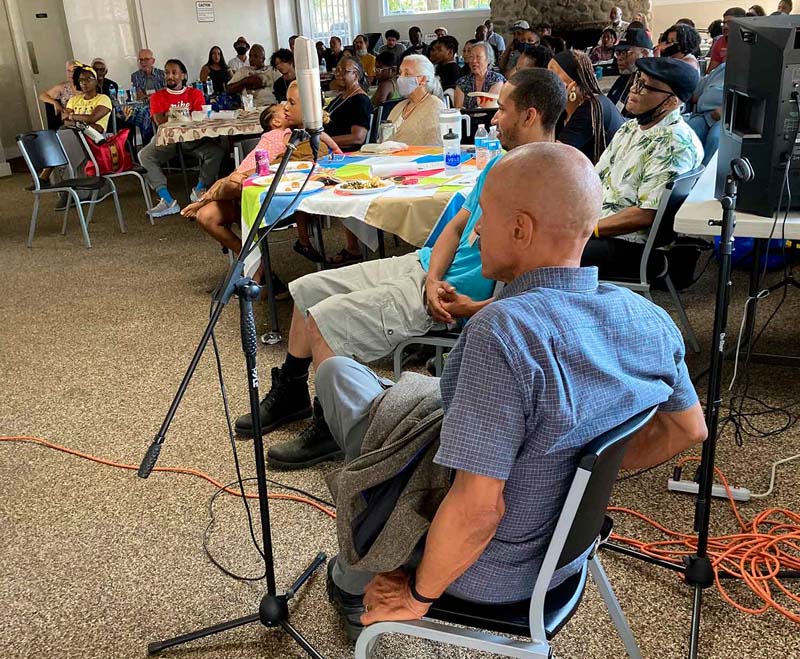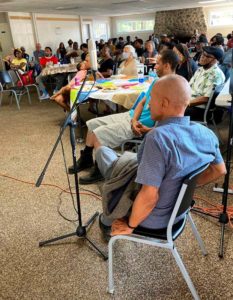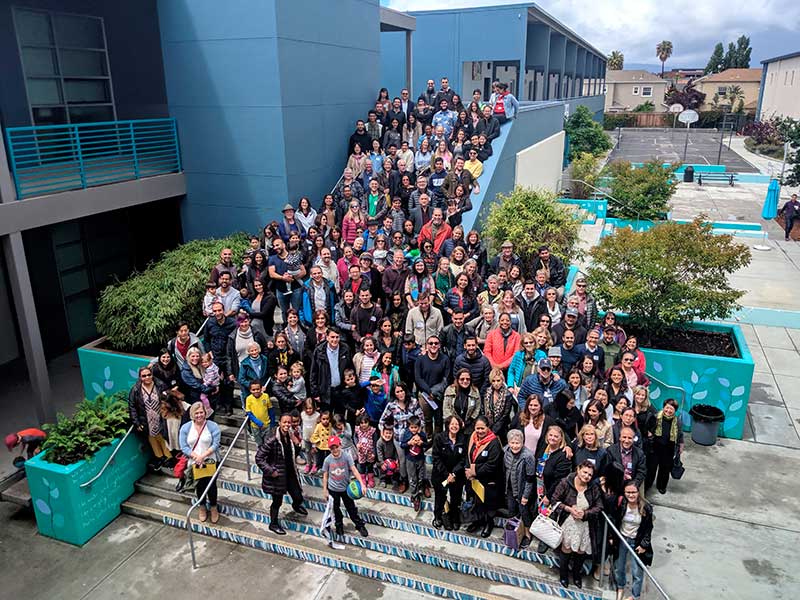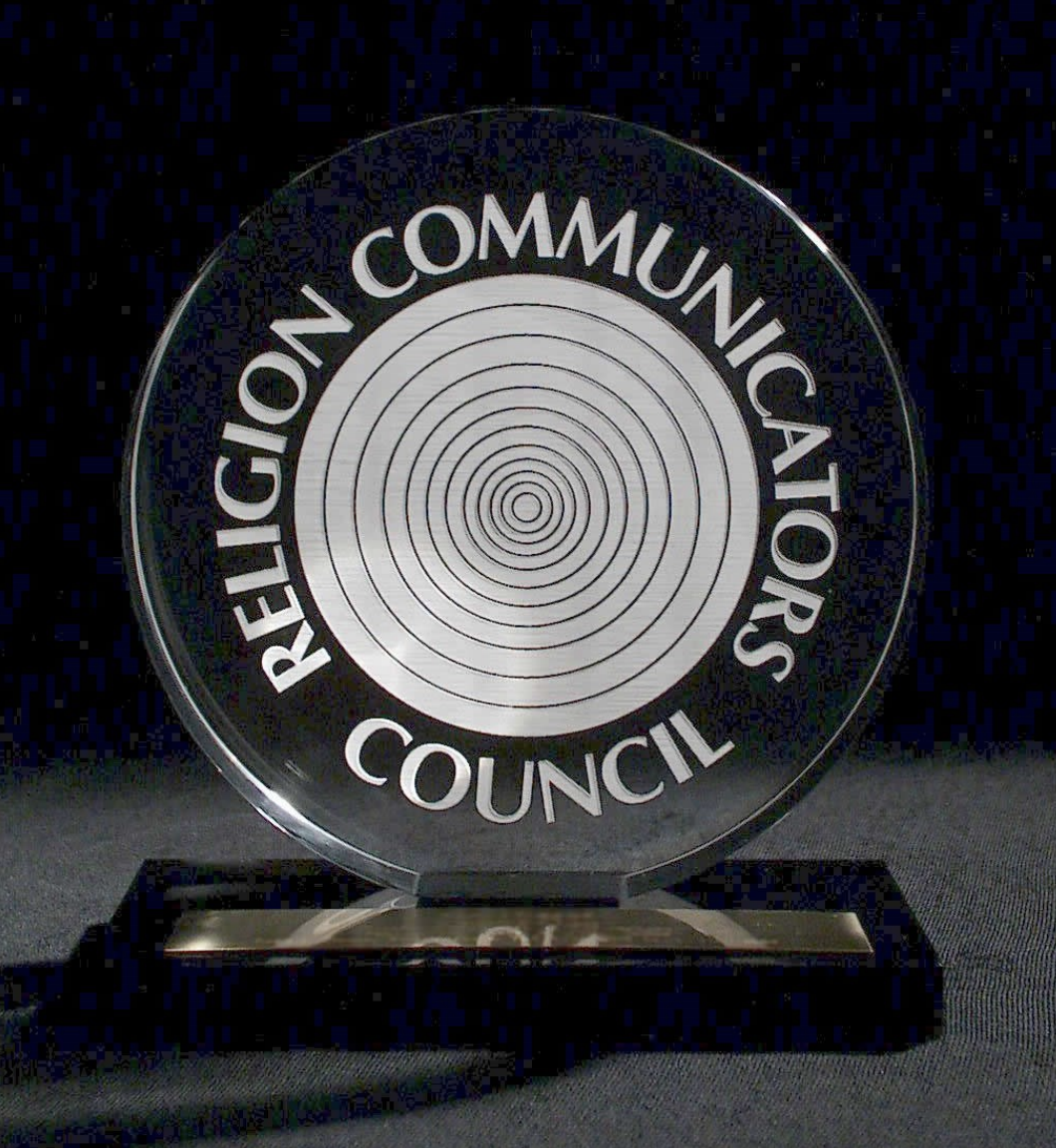
Spaces opened in Northwest for African Americans to share ideas, challenges

By Francisco Rendon
It was more than just a get-together, but what a get-together it was.
About 100 African-American Baha’is spent Aug. 7 praying together, celebrating their heritage and destiny, and dining on barbecue and fried fish at a park in Centralia, Washington.
Coming largely from Washington and Oregon, many hadn’t met each other in person or had not seen each other in a long time, says Ebonee Bell, the event’s emcee.
And planners had a full day’s program: devotions starting at 10 a.m., an icebreaker game of “culture tag,” multiple dance performances — all of which drew on traditional African dance and some of which incorporated drums — and talks from speakers including Joy DeGruy and Karida Griffith, both of whose research and educational activities embrace the tragic struggles, resilience, and collective strengths of Black people in America.
“We had a lot of good content, way too much good stuff,” Bell says.
The gathering grew from months of effort, facilitated by the Regional Baha’i Council of the Northwestern States, to widen and deepen opportunities for African-American Baha’is and friends to engage in conversation about carrying out the teachings of Baha’u’llah. And some effects are starting to emerge among Baha’is and Baha’i institutions.
Lonnie Locke, an African-American member of the Northwestern Regional Council, said making sure that the voices of Black Baha’is are heard in consultation spaces and that those persons are represented in institutions is crucial for a community hoping to exemplify Baha’u’llah’s teachings about the oneness of mankind.

“When these voices aren’t present, it is as if you are leaving a vital ingredient out of a recipe you are making,” Locke said. “I think having a wide variety of folks with different experiences really enhances any of the decisions that are made, it shows the world that the message of unity is being played out in the things that we do.”
Locke said she and some friends she speaks with feel they are finally getting a glimpse of greater unity among Baha’is, as many whites are learning to acknowledge their inherent assumptions of superiority and African Americans are learning to forgive for the generations of trauma inflicted upon their ancestors.
“The Regional Council,” says Erica Toussaint-Brock, also a Council member, “is now at the point where we ache for diverse voices, we know what we are missing, and we want ourselves and the Baha’i community and the general population to benefit from the insight, wisdom and experience that the ethnic majority does not have.”
The Council decided to sponsor the August gathering after the idea for it emerged from conversation spaces, mostly on Zoom, for African-American Baha’is in the region. The idea was for participants to share ideas and challenges, plan events and activities, and form relationships. The Council in turn sought to learn how to better serve this population and draw on its potential.
In addition to asserting that all souls are spiritually equal and calling for an end to prejudices, Baha’i teachings liken Black people to the “pupil of the eye … through which the light of the spirit shineth forth.” Guidance over the past decade has re-emphasized that people of African descent and Indigenous people are historically significant populations in America destined to make unique contributions toward bringing the healing teachings of the Baha’i Faith into reality.
In response to this guidance, the Regional Council addressed two letters to Baha’is of African descent in the two states on Jan. 3 and June 11, after hosting online gatherings. In the second letter, the Council wrote that its efforts “represent the merest beginnings of a learning process to which we are committed,” and it hopes “to see increasingly truthful and open relationships between and among individuals, institutions, and communities.”
Ebonee Bell said the idea for the gathering in Centralia emerged during one of those online meetings. All the arrangements were made within 10 weeks after it became clear that many Baha’is of African descent in Washington and Oregon would benefit from gathering in person. The Regional Council endorsed and supported the event.
“We had planned things taking place, but with room for improvisation, which, to me, is a uniquely African-American way of doing an event like this,” Bell says. That spirit was abundant during a drum performance when several audience members joined the performers on stage.
“We had a plan, but if you wanted to get up there and dance, you could, nobody was going to stop you,” Bell says. “And that is not the usual way I find Baha’i events are organized. Normally, if you want to get up and dance, but you are not in the program, you cannot.”
Conversation spaces like the one that sparked the idea for the Centralia gathering do not have a rigid structure or agenda provided by the Council, Toussaint-Brock emphasizes. Rather, they allow for the institution to listen to Bahá’ís in the region so that they can use the spaces in ways that are helpful to them.
The Council also encourages Local Spiritual Assemblies, the governing councils serving local Baha’i communities, to take the course “Anti-Black Racism in the U.S. and Building a Unified Society” through the Wilmette Institute, an online learning center sponsored by the National Spiritual Assembly of the Baha’is of the United States. The Council also has sponsored the creation of a working group to learn about how to bridge cultural gaps between Persian and African-American Baha’is.
“When we were wrestling with these questions, of how to increase our efforts to work with this population, it was amiable but very focused,” Toussaint-Brock says. “We asked, ‘What does this guidance about freedom from racial prejudice mean?’” — especially in the context of Baha’i efforts to build community at the local level.
One thing that emerged was that in the Baha’i community, sometimes prejudice means that voices from ethnic minorities get dismissed, Toussaint-Brock says. “So some friends get tired of going to meetings because they feel like nobody listens to them. There are so many ways that people’s contributions get dismissed because they are not being offered in the style the majority of people are used to.”
Nekicia Luckett, who participated in the Centralia event, says she has seen the effects of the Regional Council’s focus on the Black population, not only in the events it is organizing, but in the behavior of her Local Spiritual Assembly after its members took the Wilmette Institute’s Anti-Black Racism course.
“Part of our culture in our Black community is invitations. A lot of times we don’t do anything unless we are invited,” Luckett says. “Getting invited to participate in events [or to consult on plans], it makes a difference. I have witnessed many issues over the years that have required consultation, but it wasn’t until the institutions invited me directly to participate in the conversation that I started being more open.”





